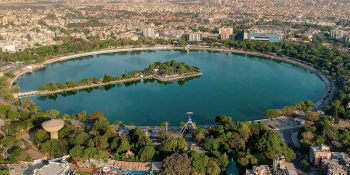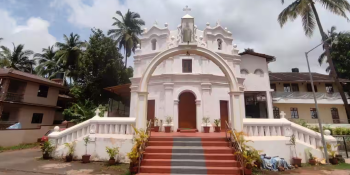Traveling on a budget doesn’t mean sacrificing experiences or compromising on quality. With careful planning and smart decision-making, you can explore the world without breaking the bank. Here are some tips to help you plan your budget-friendly adventure:
- Set a Realistic Budget: Before you start planning your trip, determine how much you can afford to spend. Consider all expenses including transportation, accommodation, meals, activities, and souvenirs. Be realistic about what you can comfortably afford and stick to your budget throughout your trip.
- Choose Budget-Friendly Destinations: Some destinations are inherently more affordable than others. Research destinations where your currency goes further or where the cost of living is lower. Consider traveling to off-peak destinations or less touristy areas to save money on accommodation and activities.
- Travel During Off-Peak Seasons: Prices for flights, accommodations, and attractions are often lower during off-peak seasons. Avoid traveling during holidays and peak tourist seasons to take advantage of lower prices and fewer crowds. Plus, you’ll get a more authentic experience as you mingle with locals rather than fellow tourists.
- Be Flexible with Your Travel Dates: Flexibility with your travel dates can save you a significant amount of money. Use fare comparison websites or apps to find the cheapest days to fly. Being open to adjusting your travel dates by a few days can result in substantial savings on flights and accommodation.
- Book Flights and Accommodation in Advance: Generally, booking flights and accommodation well in advance can help you secure lower prices. Keep an eye out for airline sales and promotions, and consider booking non-refundable accommodation for additional savings. However, always read the cancellation policies carefully before making any reservations.
- Consider Alternative Accommodation Options: While hotels can be convenient, they’re often more expensive than alternative accommodation options such as hostels, guesthouses, Airbnb, or Couchsurfing. Research different options and choose the one that best fits your budget and travel style. Staying in hostels or guesthouses also provides opportunities to meet fellow travelers and share tips on budget-friendly activities.
- Use Public Transportation: Opting for public transportation instead of taxis or rental cars can save you a significant amount of money, especially in cities with well-developed transportation systems. Research local buses, trains, or trams, and consider purchasing multi-day passes for additional savings.
- Eat Like a Local: Dining at touristy restaurants can quickly eat into your travel budget. Instead, eat where the locals eat – street food stalls, markets, and small family-owned restaurants often offer delicious and affordable meals. Embrace the opportunity to try local cuisine and save money while doing so.
- Limit Dining Out: While trying local food is a must, dining out for every meal can quickly add up. Consider buying groceries and preparing some of your meals, especially breakfast and lunch. Not only will this save you money, but it will also give you a glimpse into the local culinary scene.
- Prioritize Free and Low-Cost Activities: Research free or low-cost activities and attractions at your destination. Many cities offer free walking tours, museums with donation-based entry, and outdoor recreational areas that won’t cost you a dime. Take advantage of these opportunities to explore your destination without blowing your budget.
- Pack Light and Wisely: Avoid excess baggage fees by packing light and only bringing the essentials. Invest in versatile clothing items that can be mixed and matched, and consider doing laundry during your trip instead of packing enough clothes for the entire duration.
- Monitor Your Spending: Keep track of your expenses throughout your trip to ensure you’re staying within your budget. Use budgeting apps or simply jot down your expenses in a notebook. By monitoring your spending, you can identify areas where you might be overspending and adjust accordingly.
With these budget travel planning tips, you can make the most of every dollar and enjoy unforgettable experiences without worrying about breaking the bank. Happy travels!









